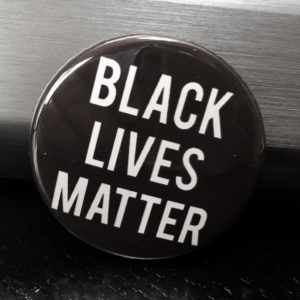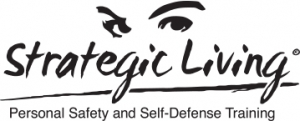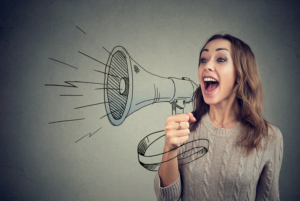Your voice is your most important safety tool. But sometimes your voice, a solo voice, alone, is not enough.
Several years ago I read about this strategy used by women staffers at the White House. Although then-President Obama did have numerous women on staff, they often felt unheard in a still mostly male environment. They chose to “amplify” each other. When one make a point, others would repeat it and give credit to the originator. It was simple, and effective.
A friend of mine was dealing with a verbally abusive supervisor. He wasn’t abusive just to her, but to anyone in his environment. Over the years individuals in the department would approach HR and senior management. But nothing happened, and eventually staff stopped going to HR. One day this supervisor had a particularly abrasive day, which impacted multiple staff as well as customers. A majority of staff from that department converged on HR and management. This time the supervisor was let go. Because a group acting together can accomplish what individuals cannot.
But sometimes even that isn’t enough. Sometimes it takes a lot of people. Thousands. Tens of thousands, Hundreds of thousands. Thousands of thousands. You can’t fit into HR’s office. You’re in the streets.
In our self-defense classes we talk strategically about using our voices. When to set boundaries in a conversational tone, or when to get LOUD. You want to get LOUD when you need to attract attention.
Now is a good time to be LOUD.
You probably want to balance your own safety with your need to speak up. Take a look at this Protest Safety Guide from Black Lives Matter Seattle – King County. To paraphrase Audre Lorde, caring for yourself does not have to mean indulgence — it is self-preservation, an act of political warfare against those who’d rather you just went away, shut up, or die. Preserving yourself in a world hostile to your community is truly self-care. So that you’re ready to again face the outside world.

 Your voice is your most effective safety tool. Yet it’s the tool most folk, especially women and girls, are reluctant to use. “Do I have to say anything?” is a too-common question in class. The answer is no, you don’t HAVE to do or say anything you don’t want to, and there are some cases where saying nothing may be your best choice. That being said, there are reasons why using your voice is an essential tool.
Your voice is your most effective safety tool. Yet it’s the tool most folk, especially women and girls, are reluctant to use. “Do I have to say anything?” is a too-common question in class. The answer is no, you don’t HAVE to do or say anything you don’t want to, and there are some cases where saying nothing may be your best choice. That being said, there are reasons why using your voice is an essential tool.